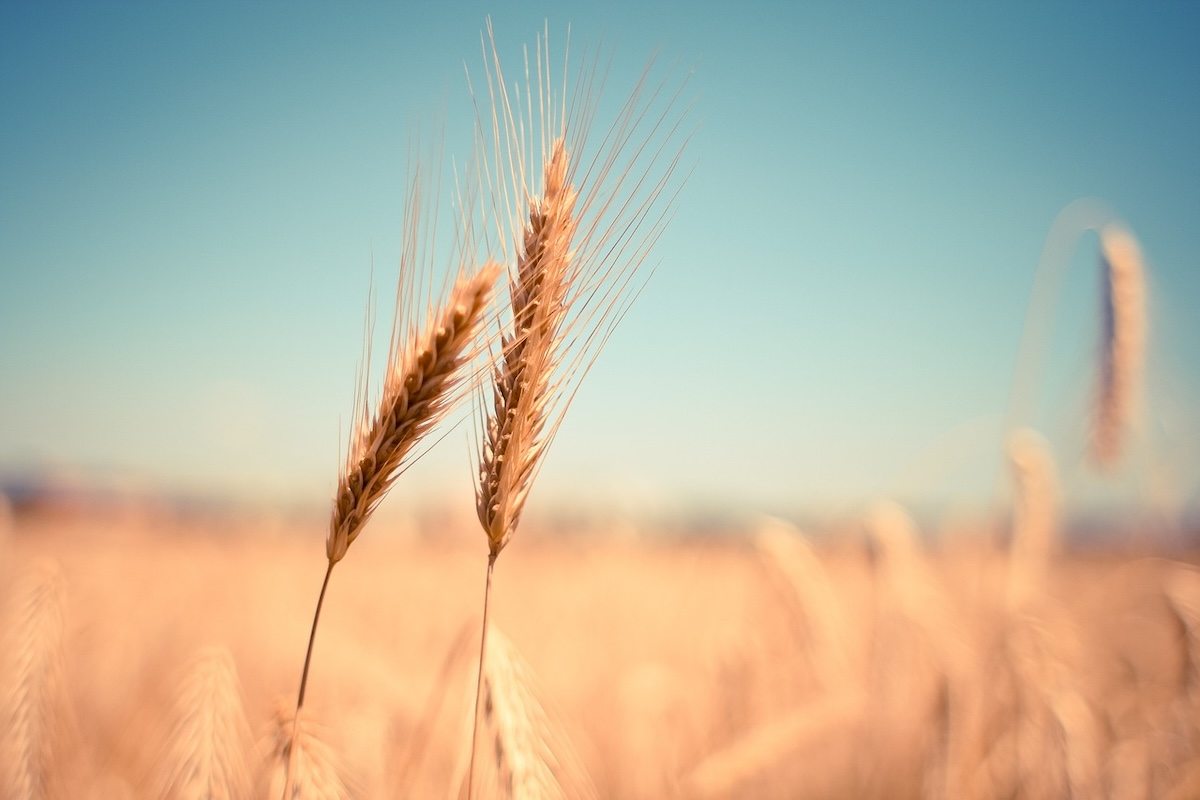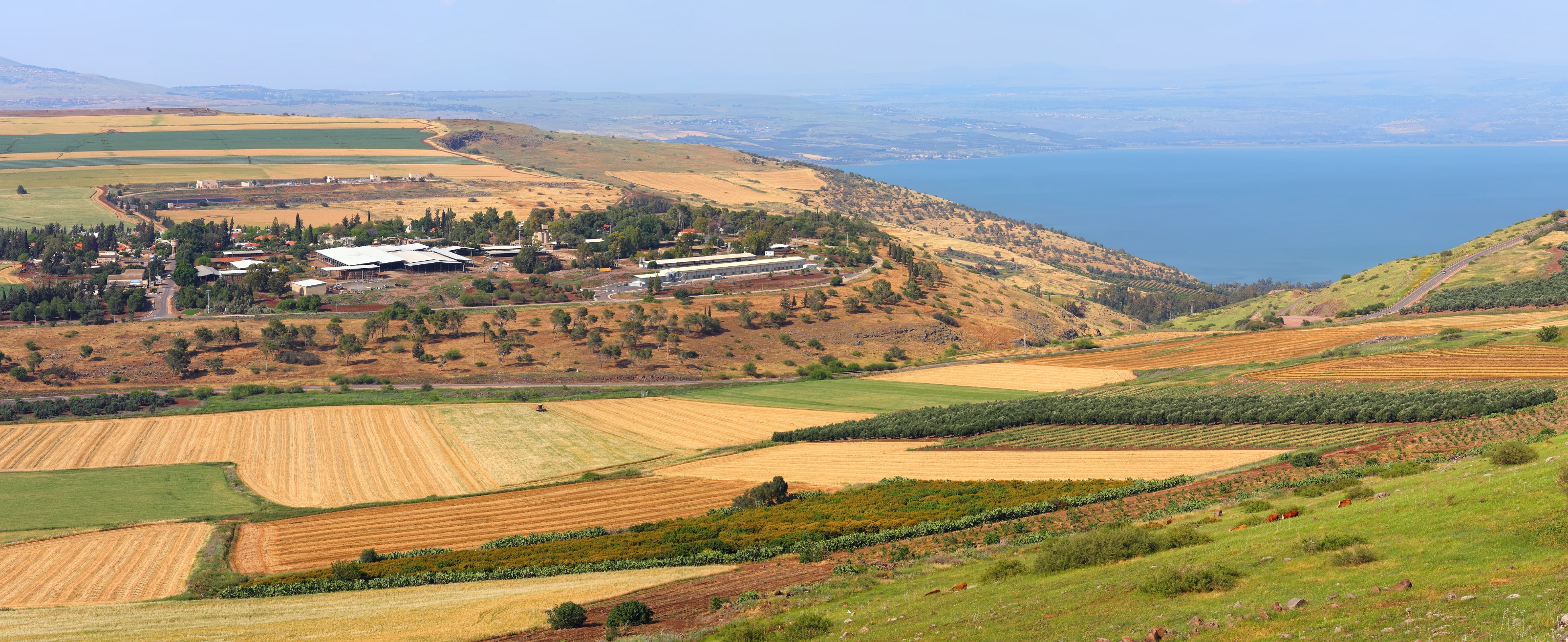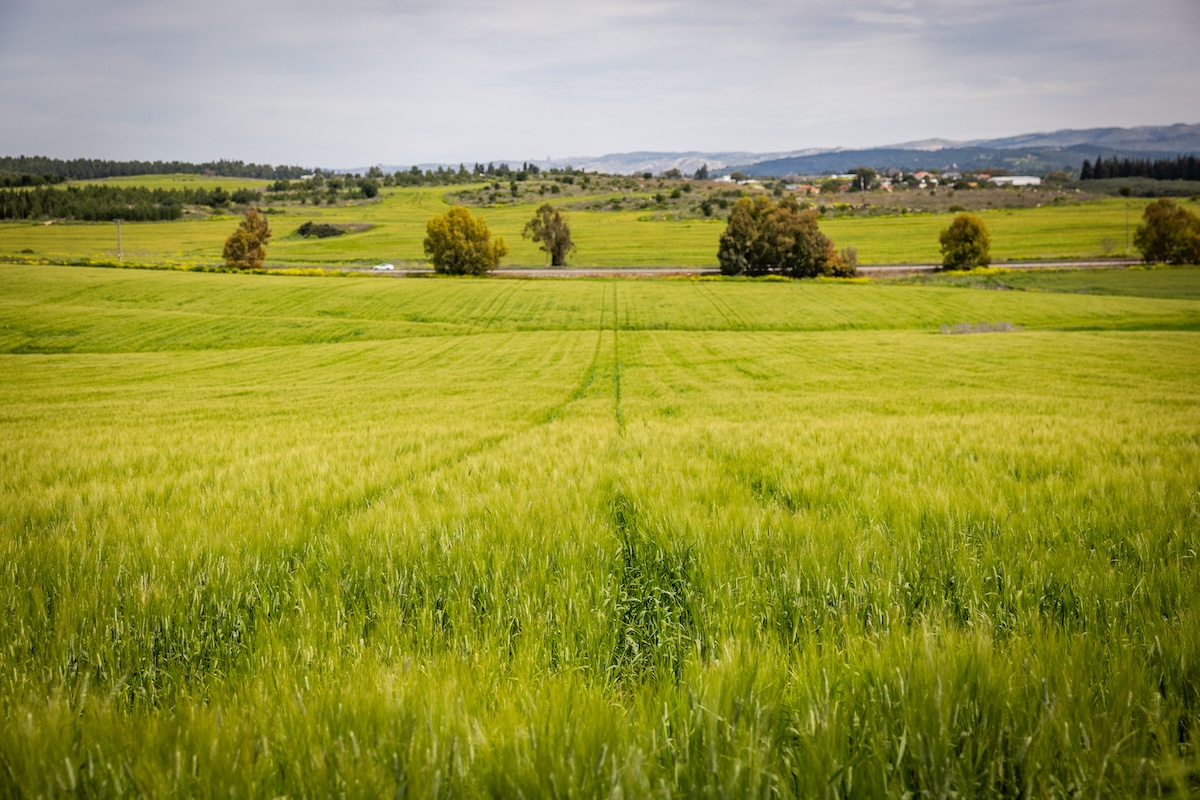While the Omer is being counted, Israeli wheat is being prepared

The term "Omer," derived from Hebrew and translated to "sheaf," denotes an ancient measure of volume referenced in the Bible. It specifically pertains to the quantity of unthreshed grain stalks allocated for the Temple offering.
The counting can be traced back to the biblical command of the Omer offering during Passover. Following this offering, The 49-day period is marked, leading to the observance of Shavuot. While Temple sacrifices ceased after the destruction of Jerusalem's Temple, the tradition of counting until Shavuot persists.
Shavuot uniquely stands out among Jewish holidays because its date is determined by the “Omer” count rather than a specific calendar date in the Torah. It marks the transition from the barley harvest to the wheat harvest, signifying the shift from spring to summer in Israel.
Also known as the "Festival of Harvest," Shavuot celebrates the first fruits of the wheat harvest, symbolizing the commencement of the season as indicated in Exodus 34:22.
Wheat is mentioned in the Book of Ruth, which is traditionally read during the celebration of Shavuot.
"And Naomi said to Ruth her daughter-in-law: It is good, my daughter, that you go out with his young women, and that people do not meet you in any other field. So she stayed close by the young women of Boaz, to glean until the end of barley harvest and wheat harvest; and she dwelt with her mother-in-law.” (Ruth 2:22-23)

Wheat tops the list
“For the Lord your God is bringing you to a good land, a land of brooks, springs, and fountains flowing forth in valleys and hills, a land of wheat, barley, grapevines, figs, and pomegranates, of olive oil and honey.” (Deut. 8:7-8)
The cultivation of wheat, considered the foremost of the seven species bestowed upon the Land of Israel, dates back millennia, tracing its origins to the Neolithic era over 10,000 years ago. The advent of wheat farming, along with the innovation of grain storage, marked a pivotal transition for humanity, enabling the shift from nomadic lifestyles to settled communities. Emerging as a primary sustenance in the Mediterranean – likely from Egypt – wheat swiftly became a dietary staple across Europe and Western Asia and played a significant role in shaping societies. The Romans understood its value, famously saying people needed 'bread and circuses.' They brought in loads of wheat from North Africa and the Middle East to keep up with demand.
Throughout centuries of agricultural ingenuity, farmers have meticulously crafted thousands of wheat varieties, each tailored to diverse climates and culinary preferences, enriching the tapestry of human food culture.

Wheat, during biblical times
Throughout the Bible, we find at least 100 verses about the well-known valuable cereal, first mentioned in Gen. 30:14 in the account of Jacob's sojourn with Laban in Mesopotamia.
In ancient times, Egypt was celebrated for its wheat production. The highest quality wheat was bearded, with the same varieties existing in both ancient and modern times. Among these, the 7-eared variety described in Pharaoh's dream is notable. (Gen. 41:22). While Babylonia was also noted for the excellence of its wheat and other cereals, Syria and Israel produced wheat of fine quality and in large quantities (Ps. 81:16, 147:14).
A cereals-based economy was important throughout Israel. The Hebrew people heavily relied on wheat, which was so plentiful during certain periods that it enabled King Solomon to pay for the materials and labor needed to construct the temple (1 Kings 5:11). Even many years later, Judah and Israel still exported wheat to Tyre (Ezek. 27:17).
In Israel, wheat was sown in November or December, after the first rains, and could be reaped in April, May or June, depending on the climate in the regions in question. The bread most consumed by the ancient Hebrews was made from wheat flour (Gen, 18:6; Ex. 29:2).
Wheat was also used as an offering and toasted loose grains were eaten (Lev. 2:14, 16; Ruth 2:14) as a light, easily portable food (1 Sam. 17:17; 25:18; 2 Sam. 17:28). The wheat was sown in the winter, and sometime after the barley. During the Egyptian plague of hail, consequently, the barley suffered, but the wheat had not appeared, and so escaped injury.
In the New Testament, we see that Jews consumed raw wheat grains directly from the ear, mirroring the practice of Jesus/Yeshua's disciples (Matt. 12:1).
The Lord talked metaphorically about wheat, likening the children of the Kingdom to wheat (Matt. 13:25-30), comparing Himself to a grain of wheat (Jn. 12:24), and alluding to wheat grains producing abundantly in fertile soil (Matt.13:8).

The remarkable tenacity of Israel's wheat production
The most ancient wheat grain is known as “Einkorn.” From Einkorn's initial cross with another grass or grain, Emmer emerged. Continuing the cycle, Emmer botanically crossed two breeds to give rise to spelt, which also underwent cross-pollination. This ongoing process has persisted through the ages, shaping the grains we have today.
David Levy, the general director of the Israeli Association of Field Crop Producers, reported that approximately 110,000 hectares of wheat are cultivated in Israel each year. Half of this harvest is dedicated to hay production, mainly serving the dairy industry, while the other half is utilized for cereals and straw.
However, Levy warns: “The world population is growing, the climate situation is not getting better, the amount of arable land on which wheat can be grown is limited, and the question of agricultural commodities, and wheat specifically, will become an issue over the next two to three decades.”
In Israel, the prevalent wheat variety under cultivation is Triticum aestivum, capable of occasionally producing up to 100 grains per ear.
The extensive distribution network in Israel encompasses the Golan Heights, the Hermon, the Galilee, the Mediterranean Coast, Upper Jordan Valley, Northern valleys, Gilboa, Carmel, Samarian Mountains, Samarian Desert, Judean Mountains, Judean Desert and the Dead Sea Valley, Ein Gedi, Sharon, Shefela, Northern Negev, Negev Hills and Eilat, the Aravah and Jordan Valley.

The agricultural research director at the Volcani Institute, Roi Ben David, stated: “Israel is geographically sitting on a genetic treasure. These are wheat lines that go back to the beginning of agriculture where cultivation of wheat started,” highlighting that the goal of scientifically crossbred wheat is to produce stronger, more viable strains.
A few years ago, a baking and tasting panel was organized with four artisanal bakers and Stybel Flour Mills, a large supplier of flour in Israel.
One of the bakers, Hagay Ben Yehuda, said he was fortunate that his interest in ancient wheat strains Einkorn and Emmer - “the grandmother and grandfather of all the wheat in the world” - coincided with the Volcani wheat researchers outreach to bakers working with traditional methods. In collaboration with a farmer from Galilee, Ben Yehuda planted seeds of ancient and indigenous wheat strains from the Volcani bank.

Once again, the nation of Israel demonstrates its ingenuity in researching and developing new techniques to extract from the old the resources needed to ensure its future, and even sharing these advancements with other countries in the Middle East.
During this significant time, let’s aspire intensely that Jesus Yeshua’s declaration: “I am the bread of life” (Jn. 6:35) will be acknowledged by many, and that the celebration of Shavuot, marked by the descent of the Holy Spirit upon believers, will result in a bountiful spiritual harvest.

The All Israel News Staff is a team of journalists in Israel.
You might also like to read this:















